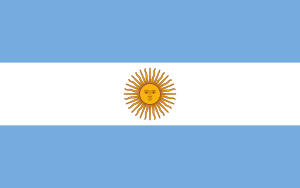Wikimedia chapters and communities challenge Commons' URAA policy
Following a trend started by Wikimedia Israel, Wikimedia Argentina has published an open letter challenging the recent deletion of hundreds of images from the Commons under its policy on URAA-restored copyrights, relating to the United States' 1994 Uruguay Round Agreements Act. In part, it reads:
Volunteers from Argentina have been among the most affected by the policy adopted by Wikimedia Commons administrators regarding images that could fall under URAA copyright provisions. Argentine copyright law provides that images enter the public domain “only” 25 years after their production and 20 after their first documented publication. This relatively generous criterion has enabled unaffiliated volunteers and we as Wikimedia Argentina to enrich Commons with hundreds of thousands of historical images that are absolutely free under Argentine law: images of the political and every day life of the country, of its culture, of its popular idols, of its joyful and dark days, of its customs and architecture.
However, over the last months certain Wikimedia Commons administrators have conducted massive deletions of these contents, in many cases involving entire categories. The burden of proof has been inverted: instead of having to justify the deletion of a certain file, things go that volunteers have to devote their time trying to justify the validity of their efforts. This has caused great damage, not only by way of our readers losing access to free educational contents, but also de-motivating many editors and volunteers by making them feel that their efforts are ultimately vain and that our goal of free knowledge for everyone is being replaced by a certain legal fetishism whose reason gets lost in processes and misses the outcome.
In an effort to comply with the Berne Convention, the URAA regranted copyright protection to some works that had been previously free to use. Unsurprisingly, it quickly faced vociferous legal challenges; the largest, Golan v. Holder, failed on the steps of the US Supreme Court in 2012. The conflict on Commons stems from the location of the Wikimedia Foundation's servers, which are used to host all of Commons' images and are in the US, making them subject to US laws. Compounding this are the several Wikipedias—including four of the top nine by article count—which outsource their local image hosting to Commons.

The issuing of the open letters prompted a response from the Foundation's Board of Trustees. Under "on content", the board's chair Jan-Bart de Vreede stated that "The WMF does not plan to remove any content unless it has actual knowledge of infringement or receives a valid DMCA takedown notice. To date, no such notice has been received under the URAA. We are not recommending that community members undertake mass deletion of existing content on URAA grounds, without such actual knowledge of infringement or takedown notices." An impromptu vote to restore all images deleted to comply with the URAA is currently underway, with a majority in support as of publishing time.
One oppose vote came from Lupo, who wrote that "The WMF has told us several times that all files hosted must be free in the U.S. And now we should ignore the URAA? A U.S. law, upheld by the U.S. Supreme Court? Just because the WMF doesn't like it?" Odder, who also opposes the proposal, called back to Commons' core principles: "... files have to be released under a free licence or be in the public domain both in the country of origin and in the United States. Undeletion of files that are unfree in the US will be in direct contradiction to this core principle of ours." In supporting, ליאור wrote that "6.7 billion non-American people should not be affected by an extremist interpretation of an intra-American affair." Supporters have also suggested adding a URAA-specific disclaimer to affected images that would warn US content reusers that they could face legal action.
Discussion is continuing on Commons, and Wikimedia Israel's Spain's, and Venezuela's open letters are available on Meta.
